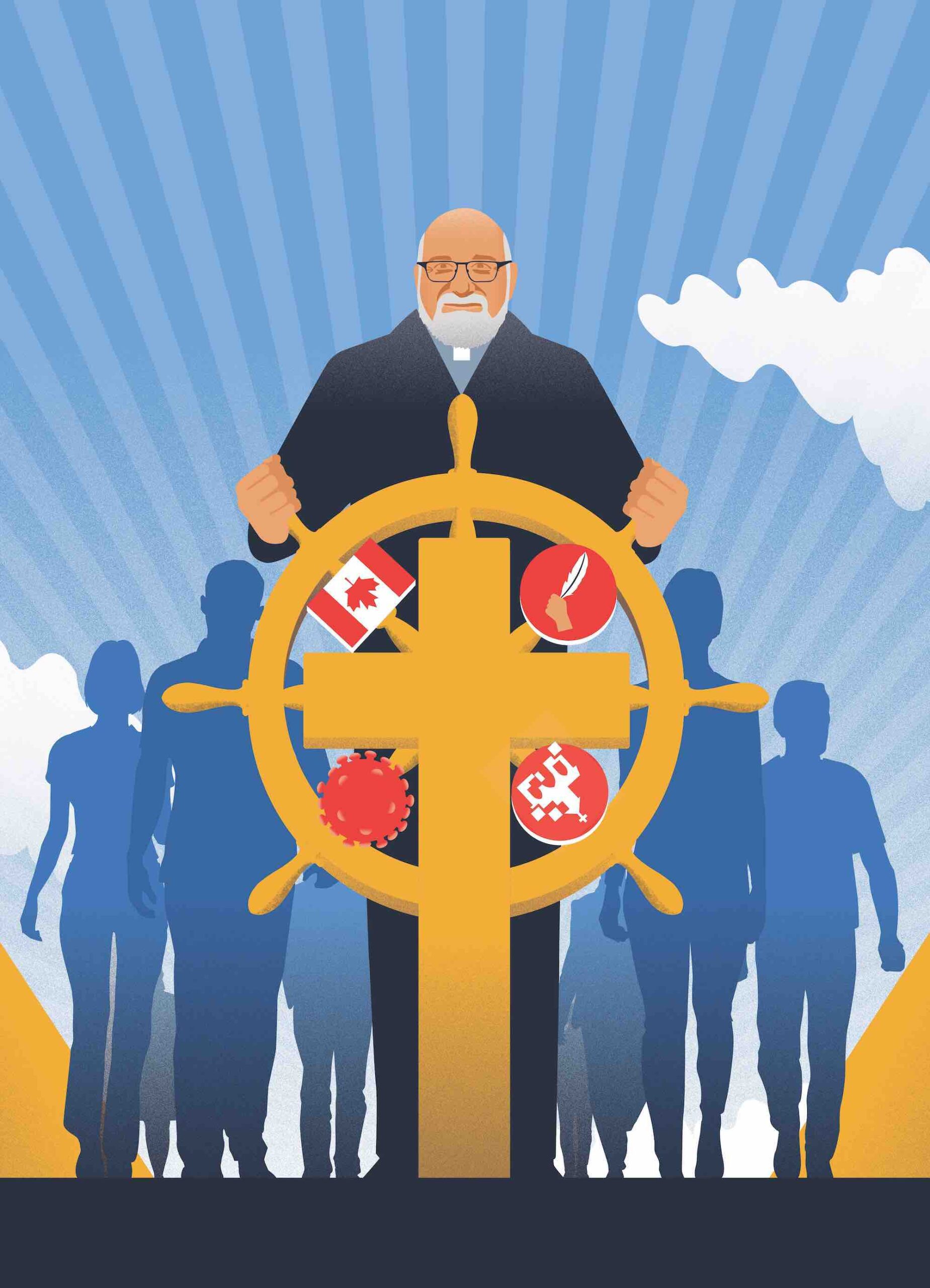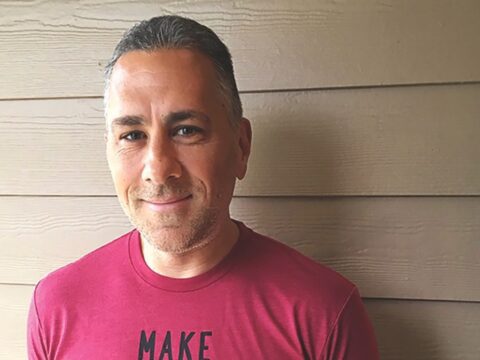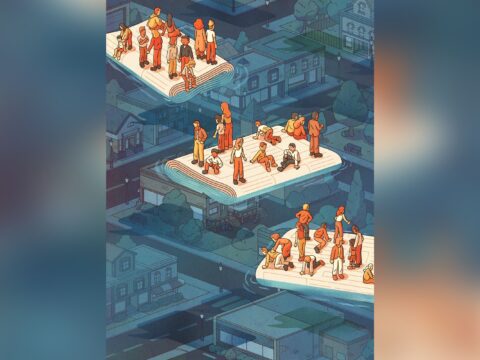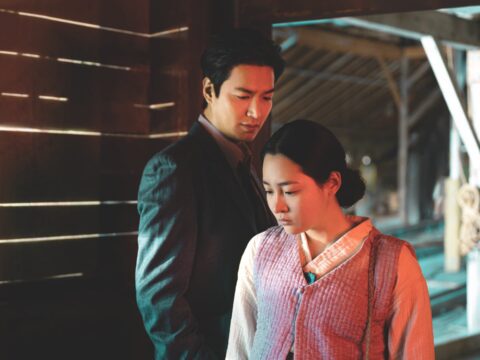As Rt. Rev. Richard Bott was preparing to wrap up his term as the 43rd moderator, he took a moment to reflect on his time as head of The United Church of Canada. In an interview with Broadview associate editor Julie McGonegal, he talks about the journey that led him to the job and what it was like to steer the church through some major challenges — a shrinking church, a pandemic, a denominational reckoning with colonialism and racism, and a major restructuring among them. He also shares his hopes and prayers for the United Church’s future.
Julie McGonegal: What led to your decision to put your name forward as moderator in 2018?
You may unsubscribe from any of our newsletters at any time.
Richard Bott: For the longest time, probably my entire ministry or longer, the message I have heard in the church is that The United Church of Canada is dying. That’s been the narrative. My sense of call was not necessarily to be moderator. My sense of call was to stand in front of the General Council of The United Church of Canada and say, “This narrative is a false narrative, and we need to stop repeating it.” If we are truly living our call as community, then what our future is doesn’t actually matter. What we’re doing matters, how we’re living matters, that whole sense of being integral.
When I said what I said to the General Council, I had accomplished what I felt I had been called to do. The fact that that resonated with the General Council for whatever reason, and they asked me to be in this role, was a continuation of that call. My task has been to challenge a narrative of death and to talk about who we are as people now and who we are called to be as people living the ministry into the future.
JM: When you addressed the floor at General Council 43, you described yourself as the “epitome of privilege.” What has it been like to lead the church as a privileged person at a time when it is reckoning with its legacy of oppression?
RB: Being reminded that I am the face of the oppressor in almost every setting — from gender and sexual identity to race — has meant working to carry myself with a level of humility, with a recognition of the privilege I have. It’s not about beating myself up with it, but recognizing it and being able to articulate it for myself and for others in a similar place. I have been able to have those conversations with others, both inside and outside the church, during the last four years. My privilege has given me a place to challenge other people’s privilege.
I am deeply thankful that both of our general secretaries [past and present] heard what the racialized members of General Council said on that final day, and that the General Council Executive heard it. They had already been working with a mindset of equity, but that mindset has grown during the last four years. There is, however, still much that needs to be done.
JM: Talk to me about Indigenous justice. What work has been done, and what remains to be done?
RB: The decision that the 43rd General Council made to accept the Indigenous Caretakers’ Calls to the Church, as well as to make the United Nations Declaration on the Rights of Indigenous Peoples foundational to our work, was a really good first step. But making it a reality around self-determination is something we need to work at. Indigenous communities will need to figure out how Indigenous churches are going to be the Indigenous church in the United Church. Different communities, different nations, different language groups all have different understandings about what that’s going to mean. There’s no monolithic Indigenous perspective.
And the settler part of the church — we have all kinds of colonial practices in our governance. Those crash up against the organic realities of the developing Indigenous church. I have been so thankful for the grace in which various folks from Indigenous churches have been able to work with me and help me to understand that. But I also recognize deep frustration with our system and how much further we need to go — not just with truth and reconciliation, but also with reparation. We have such a distance to go.
JM: In all of this too, there is the wider restructuring of the church. How has that shaped your experience during your term?
RB: People who were actively involved in the previous structure — with Presbyteries, Conferences and then General Council — have found ways of moving into our new way of being. People do miss the connection, fellowship and comradery that the Presbytery level offered — even people who complained about those bodies. There is a sense of loss. We will have to find ways of providing collegial caring and bringing together ministry personnel outside the new structure. There are gaps that we have to find a way of responding to. That’s going to be a growth process that takes a lot of time — more than four years.
“We have done all of our greatest things, and all of our most problematic things, in this life of decline. So why are we worried about that?”
JM: How has the pandemic contributed to that sense of loss?
RB: It has definitely exacerbated it. It’s created more of a sense of distance. Regions have worked really hard to help bring ministers and lay folk together through regular gatherings on Zoom. That’s wonderful. In some ways, the pandemic pushed us into the structure — into doing some things in a different way. As we come out of the pandemic, we’re going to need to figure out how to live into this new structure, which for many people feels more distant. I think we can do it. What it’s going to take, from my perspective, are groups of ministry personnel and groups of congregations who say, “It doesn’t matter that we don’t have Presbytery; we want to get together.” And it may not be 18 or 20 congregations; it may only be the three that are in the three-hour drive if you’re in a rural area, or the seven that are within a 20-minute drive. But they get together and do everything they can to support one another as ministry personnel and congregations.
JM: As if the pandemic and church restructuring were not enough, the United Church is still grappling with the controversy surrounding Rev. Gretta Vosper, the United Church minister who continues to serve as ministry personnel despite her professed atheism. What would you say to those who feel that United Church theology has become too watered down?
RB: One of the things I have brought to the conversation is a reminder that the United Church is a body — not just a General Council. In 2012, every community of faith, every Conference, had the opportunity to look at the idea of adding the Statement of Faith (1940), A New Creed (1968) and A Song of Faith (2006) to the doctrine. That was a rearticulation of faith by the entire church, and it was really clear what we believe: We believe in God. We believe, corporately, in a Trinitarian God — whatever that means for us as individuals or ministry personnel. We know what we believe.
What I would also consider an accomplishment of the 43rd General Council is the articulation of call and vision. Our vision statement says that we are called by God as disciples of Jesus to be “a bold, connected, evolving church of diverse, courageous, hope-filled communities united in deep spirituality, inspiring worship and daring justice.” When that statement was made, we were being really clear that there’s a wideness to who we are, but we’re grounded as disciples of Jesus.
More on Broadview:
- What to do with your grief when a church closes
- These three Black women are breaking barriers in ministry
- The United Church’s first female moderator on what she is and isn’t proud of
JM: What message do you want to leave to The United Church of Canada?
RB: In the church, we have this story that says our numbers started to diminish in the 1960s. The reality is that as a proportion of the population of Canada, our numbers started to diminish in 1930 — five years after we came together in church union. We have done all of our greatest things, and all of our most problematic things, in this life of decline. So why are we worried about that? The reality is that this is our story. Let’s live it. Let’s live the ministry that we’re called to.
JM: What is your prayer for the United Church?
RB: My prayer is that we will continue on the road of truth, walking together with the Indigenous churches, and that we will come to a place of recognizing what reparation really looks like. Also, there is a lot that the settler church needs to learn from the Indigenous church. And I’m not just talking about ceremony and practice. I’m talking about mindset and understanding of who God is in the wider sense of who we are.
***
This interview has been edited and condensed for clarity. It first appeared in Broadview’s July/August 2022 issue with the title “Changing the story.”
Julie McGonegal is an associate editor at Broadview.















I’m confused by this statement. “We believe, corporately, in a Trinitarian God — whatever that means for us as individuals or ministry personnel. We know what we believe.”
How can one know what they believe, if it means whatever?
If each person believes something different, how does the community live in unity? How do you defend your belief?
Bottom line – If God wants the (United) Church to die, it will. No man will be able to save it.
The Moderator’s decision to ignore the imminent death of the United Church is in line with the overwhelming majority of the “faithful remnant” who lead the tiny, aging, and rapidly dwindling band of UCC partisans. However, I also believe it means the Moderator and the UCC have nothing to say about anything of importance.
After all, who can care if denominations like the UCC (including Anglican, Moravian, Presbyterian, Quaker, and so on) are tiny shards in contrast to their stature 60 years ago, when much bigger fry are also dying – the oceans, the atmosphere, and the human race itself?
All my life, the threat of imminent nuclear annihilation has hung over humanity; and with today’s hot war in Ukraine, the prospect of an accidental or purposeful nuclear exchange has filled many more minds. In these last 65 years, Canada’s population has risen from 15 to 38 million and the world from 2.7 to 8 billion; and several hundred billions of barrels of oil have been burned, which means climate disaster is now unavoidable.
If through some set of miracles, the UCC had found a leadership that took seriously the decline and aging of its membership (from 1.5 million people worshipping in UCC congregations in 1957 to 100,000 today; from an average age near 40 in 1957 to near 70 today; from 45,000 teenagers confirmed in 1957 to less than 1,000 this year, etc.), it could have helped those of us who remain in the church to die consciously and to prepare for what is next in this wondrous and disastrous age. This would have been a Christ-like path, I believe.
If the world’s many social problems — from fascism, to environmental annihilation, to Internet-mediated polarization – allow us time, people who are by grasped the Gospel’s central message of death and resurrection will try to create communities of faith, hope, and love that are post-denominational.
Unfortunately, the Moderator, and others with his ostrich-like stance, will play no part in this work. Many of us want to be with others in these times of wonder and disaster, but the UCC by ignoring its own mortal reality is also dead to what is happening around it.
Sticking one’s head in the sand is not the answer.
Apparently worrying about social problems and embracing the current culture has not helped either, otherwise the membership numbers would have more than increased in the UCC.
One thing I do notice of your response is that you do not believe that God is in control. If you did, the petty things such as climate control and the world’s population would not be a concern for you, things of earth are temporal.
God has told us that faith of a mustard seed will move mountains and if we ask it will be given unto us.
Never mind present things. Why is the church not worried about the future things, such as an everlasting relationship with Christ, who didn’t spare His life, so that we would not lose ours?
We as Christians are called to live a Spiritual life, not a mortal one.
There are enough lost souls living a mortal one.
“For your heavenly Father knows that you need all these things. But seek first the kingdom of God and His righteousness, and all these things shall be added to you. Therefore do not worry about tomorrow, for tomorrow will worry about its own things. Sufficient for the day is its own trouble.”
If you’re worried about tomorrow, you’re sticking your head in the sand as well, and you’re certainly not thinking of eternal things.